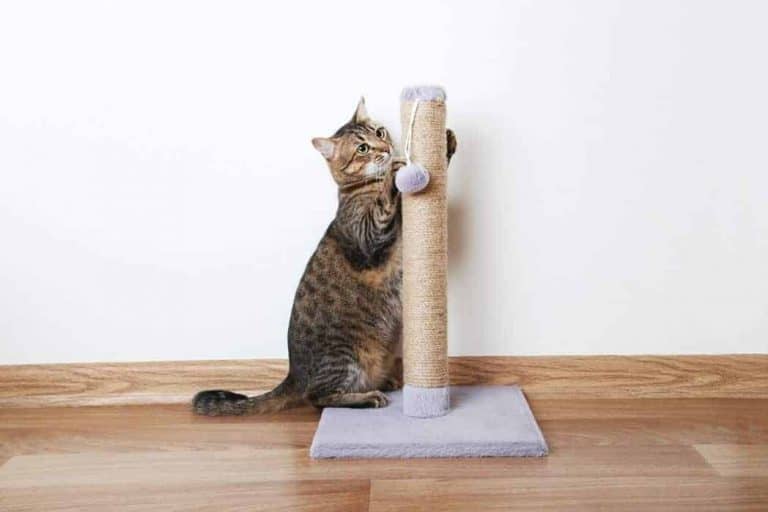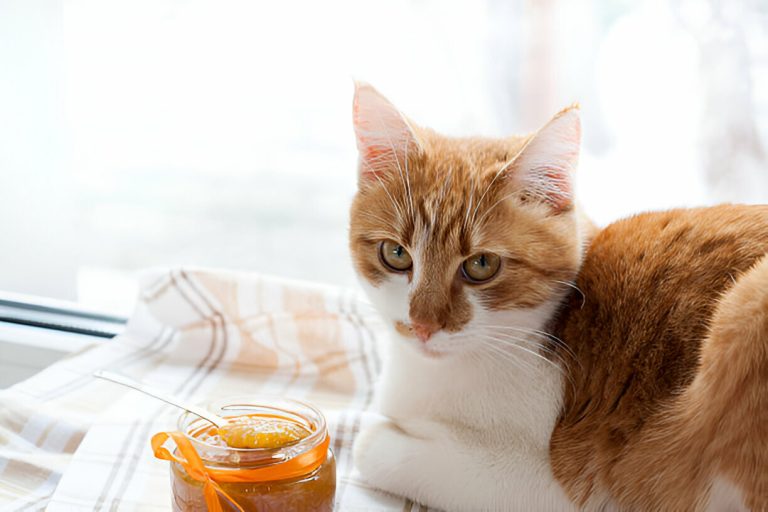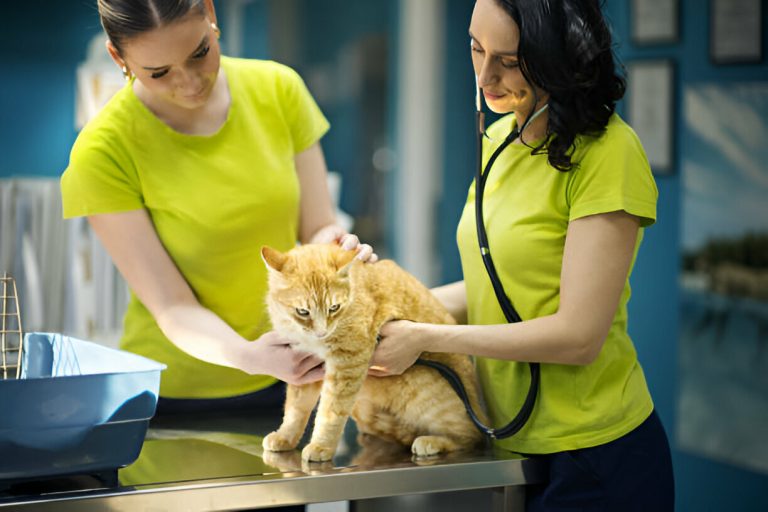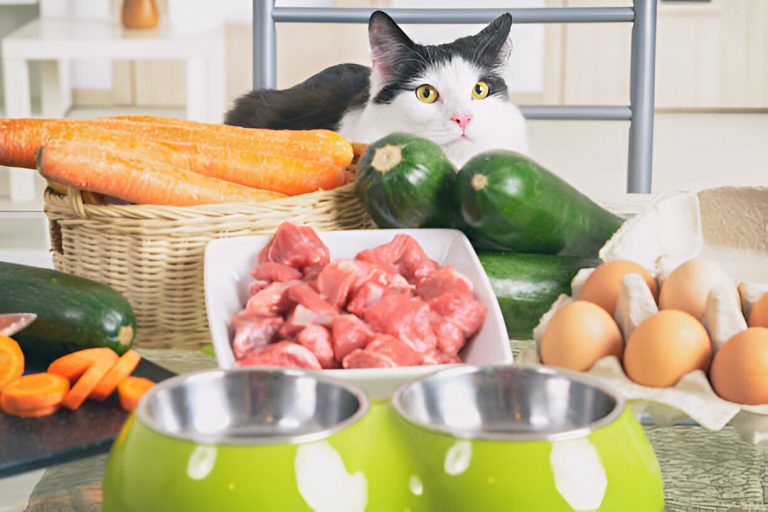Can Cats Drink Almond Milk?
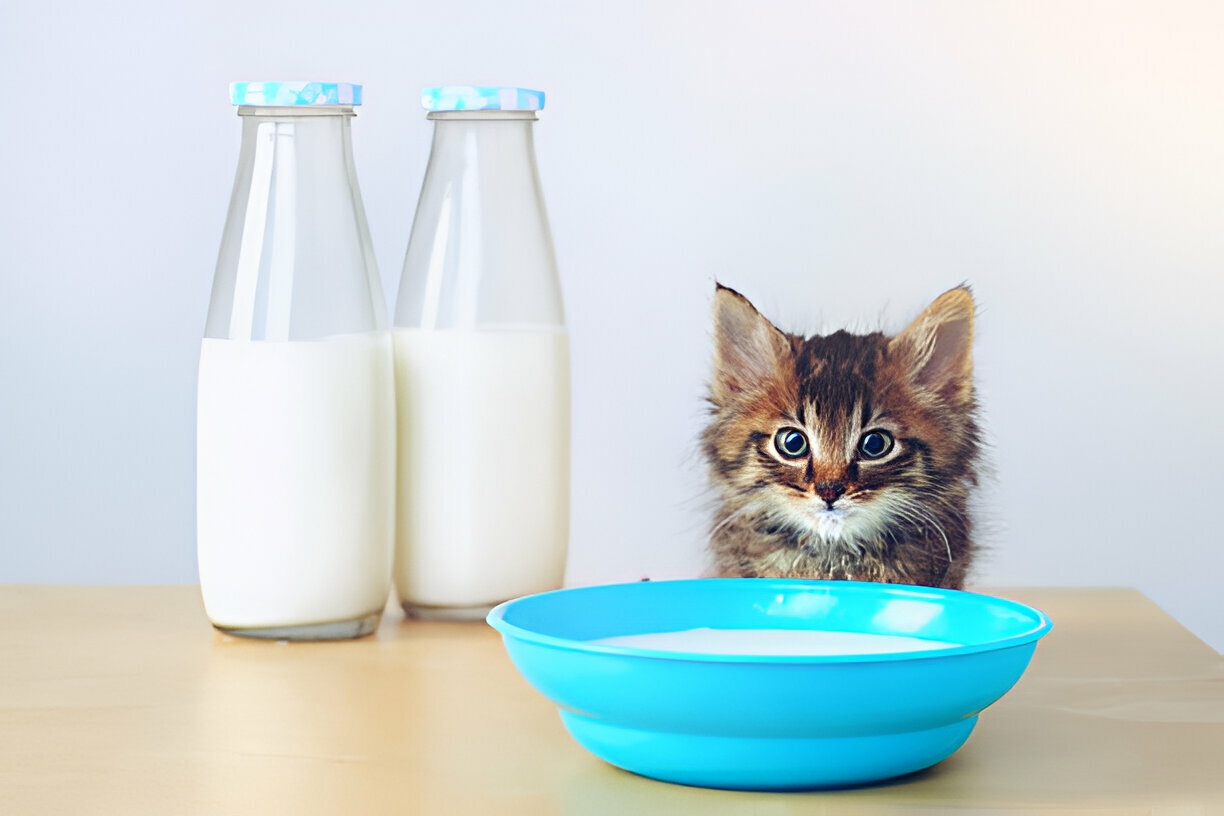
Almond milk serves as a popular plant-based alternative to traditional cow’s milk, often lauded for its health benefits to humans, such as being lower in calories and free of cholesterol. While humans may sip on almond milk for its nutty flavor and nutritious profile, its suitability for feline consumption is less straightforward. Cats, obligate carnivores by nature, have dietary requirements that are quite distinct from humans, leading to a nuanced discussion about whether almond milk fits into a healthy diet for our whiskered companions.
One unique feature of almond milk is that, unlike cow’s milk, it does not contain lactose, which is beneficial for lactose-intolerant beings. Since many adult cats are lactose intolerant, unable to adequately digest lactose present in cow’s milk, almond milk might seem like a safe bet. However, the lack of lactose does not inherently make almond milk suitable for cats. Cats lack significant amounts of the enzyme needed to process plant-derived nutrients effectively, which means that the nutritional profile of almond milk aligns poorly with a cat’s dietary needs. Moreover, the added sugars and artificial sweeteners commonly found in commercial almond milk can be harmful to cats, potentially leading to obesity, dental issues, or more severe health complications such as diabetes.
Choosing to serve almond milk to cats also warrants a discussion about the potential risks and considerations that a pet owner must be aware of. The high calorie content in some almond milk products, primarily due to added sugars, can contribute to weight gain in cats if consumed in large quantities. Additionally, certain brands of almond milk may contain additives like xylitol, a sweetener that is toxic to cats, posing significant health risks. Furthermore, adding almond milk to a feline diet could displace more nutritionally complete food options, potentially leading to nutrient deficiencies over time.
Following this informational foundation on almond milk’s compatibility with feline dietary needs, further examination will delve into the appropriate serving size, if any, that may be considered safe for cats. Additionally, a close look at the potential benefits or drawbacks of various types of almond milk products available on the market, as well as alternative nutritional supplements to consider, can provide a more holistic understanding of this topic. Crucial guidance will be shared on how to approach the use of almond milk in a balanced feline diet, as well as tips from veterinary experts on responsible pet nutrition.
In the context of responsible pet care, it is essential for cat owners to make informed decisions regarding their fur babies’ diets. Almond milk, while typically not toxic, may be superfluous to a cat’s needs and, in some cases, detrimental. As pet enthusiasts increasingly seek human-grade options for their pets, it becomes vital to scrutinize the trend of offering human foodstuffs like almond milk to cats. Providing a treat to a cat should not compromise their health or replace key components of a nutritionally complete diet. With health and joy in mind, an in-depth look at the pros and cons of almonds and their milk form in a cat’s diet can assist owners in adhering to the highest standards of feline nutrition and care.
- Cats are generally lactose intolerant, which means they lack sufficient lactase enzymes to properly digest the lactose found in cow’s milk.
- Almond milk may seem like a safe alternative to cow’s milk for cats, as it is lactose-free, but it is not a necessary addition to their diet.
- Unlike cow’s milk, almond milk does not contain any harmful lactose, but it may contain other ingredients that are not recommended for cats, such as added sugars, preservatives, and flavorings.
- Some almond milk brands may also contain xylitol, an artificial sweetener that is toxic to cats and can lead to liver failure and hypoglycemia.
- Cats require a diet high in protein, and while almond milk might offer some nutritional value, it is not a significant source of protein and doesn’t provide the necessary nutrients that cats need.
- Almond milk is not toxic to cats in small quantities, but it should not replace water or proper meals, as cats derive the bulk of their nutritional needs from a meat-based diet.
- Overconsumption of almond milk can lead to gastrointestinal issues in cats, such as an upset stomach or diarrhea, particularly if the milk contains additional ingredients like artificial sweeteners.
- Many almond milk products are fortified with vitamins and minerals which are meant for human consumption, not felines, and may cause imbalances in a cat’s diet if consumed regularly.
- If a cat owner still chooses to give their cat almond milk, it should be given sparingly as a treat, and one should opt for an unsweetened, unflavored variety to minimize potential health risks.
- As a general rule of thumb, always consult a veterinarian before making any substantive changes to a cat’s diet, including the introduction of non-traditional food items like almond milk.
Is Almond Milk a Safe Alternative for Your Feline Friend?
One common consideration for cat owners is whether their feline companions can enjoy human food treats such as almond milk. Almond milk is a popular dairy milk alternative that is made by grinding almonds with water and filtering out the solids. It is lactose-free, contains no cholesterol, and is often enriched with vitamins and minerals. However, when it comes to cats, lactose intolerance and a cat’s specific nutritional requirements must be taken into account when considering any human food as an occasional treat. The focus keyword “can cats drink almond milk” raises important questions about feline health and diet compatibility.
Understanding the dietary needs of a cat is crucial for any pet owner. Cats are obligate carnivores, which means they rely on nutrients found only in animal products and have a limited capacity to digest plant-based foods. While almond milk doesn’t contain the lactose that can cause digestive issues in many cats, it’s also devoid of the nutritious elements cats require from their diet, such as taurine, arachidonic acid, and vitamin A. These nutrients must be sourced from animal-based food to ensure a cat’s health and wellbeing. The topic of “can cats drink almond milk” touches upon the broader discussion of appropriate treats for pets and the humanization of pet diets.

Alternative Pet-Friendly Milk Substitutes
When considering a milk substitute for pets, it’s important to explore options that are both safe and nutritive. Lactose-free pet milk is specifically formulated to mimic the mother’s milk in nutrient composition. It typically contains added vitamins and minerals to support a healthy pet diet. These substitutes often come fortified with taurine—an essential amino acid for cats that supports eye and heart health. Many vets recommend specialized pet milk products over human-grade milk substitutes due to the ease of digestion and tailored nutritional content.
Another suitable alternative is coconut milk, which is generally safe for cats in small quantities. It should be given sparingly due to its high fat content, which can lead to upset stomachs or obesity over time. Coconut milk is naturally lactose-free and contains lauric acid, which can help combat viruses and bolster the immune system. However, only plain, unsweetened coconut milk should be offered to pets to avoid any unnecessary sugars or additives.
Assessing Nutritional Needs of Felines
In understanding the dietary requirements of felines, it is essential to focus on their carnivorous nature. Cats have evolved as obligate carnivores, meaning their diets must consist predominantly of meat to obtain certain nutrients like protein, arachidonic acid, vitamin A, and niacin. Unlike omnivores or herbivores, cats have a reduced ability to synthesize these essential nutrients from plant-based sources.
Providing a balanced and complete cat food formulated to meet all their nutritional demands is crucial for their overall health. High-quality commercial cat foods are designed to include the right proportions of animal-based proteins and fats, along with a minimal requirement for carbohydrates. Additionally, dietary supplements and cat-specific treats can also contribute to fulfilling any gaps in their nutrition, provided they are given in moderation and vet-approved.
Innovative Feeding Solutions for Modern Pet Care
With advancements in veterinary nutrition, a plethora of innovative feeding solutions are available to cater to the diverse needs of house cats. One such innovation is the automatic pet feeder, which can be programmed to dispense food at set intervals, ensuring consistent portion control and meal timing. This can help prevent overeating and maintain a healthy weight.
Additionally, puzzle feeders have gained popularity, as they stimulate a cat’s natural instincts to hunt and solve problems, turning mealtime into an engaging activity. These feeders require cats to interact and manipulate the device to access their food, which can help slow down fast eaters and provide mental stimulation.
Lastly, the surge in raw diet popularity offers owners an option to feed their pets uncooked meat, bones, and organs. This method seeks to emulate the natural diet of wild felines and proponents argue that it leads to better health outcomes, like improved coat conditions and dental health. However, this option requires careful handling to prevent bacterial contamination and balanced formulation to ensure nutritional completeness.
Is almond milk safe for cats to consume?
Almond milk is not toxic to cats; however, it is not necessarily safe or healthy for them. Cats are obligate carnivores, meaning their diet should be mainly composed of protein from meat. Almond milk lacks the essential nutrients that cats require and may contain additives that could be harmful to them. While a small, occasional taste may not harm your cat, it’s generally best to avoid giving them almond milk as a part of their regular diet.
Moreover, some cats may be sensitive or allergic to nuts, including almonds. If a cat with such sensitivities ingests almond milk, it may lead to gastrointestinal upset or more severe reactions. Always monitor your cat for any adverse effects after ingestion and consult with a veterinarian if you have any concerns.
Can almond milk cause lactose intolerance symptoms in cats?
Almond milk does not contain lactose, which is the sugar found in dairy milk that can cause lactose intolerance symptoms in cats. Since cats lack significant amounts of lactase, the enzyme required to digest lactose, dairy products can often lead to gastrointestinal issues such as diarrhea or upset stomach. While almond milk doesn’t contain lactose, it is still not a recommended drink for cats due to other reasons, such as its low nutritional benefit for felines.
Even though almond milk won’t trigger symptoms of lactose intolerance, it can still cause stomach upset or allergic responses in some cats. It also can contain added sugars, flavors, or preservatives that are not suitable for a cat’s diet. For these reasons, it’s advisable to simply provide your cat with clean, fresh water as their primary drink.
Are there any benefits to giving cats almond milk?
There are no significant nutritional benefits in giving almond milk to cats. Almond milk is primarily water, almonds, and various additives, and it does not offer any necessary nutrients that cats require. Even though some brands are enriched with vitamins and minerals, the formulations are typically designed for human dietary needs and not for cats.
Cats receive all the nutrients they need from a balanced, high-quality commercial cat food. Supplements or alternative milks, like almond milk, do not provide any additional benefits and might actually be detrimental to their health due to the presence of ingredients that can be difficult for cats to digest.
What should I do if my cat accidentally drinks almond milk?
If your cat accidentally drinks a small amount of almond milk, it is unlikely to cause serious harm. However, you should monitor your cat for any signs of gastrointestinal discomfort, such as vomiting or diarrhea. Since each cat is unique, even a small amount might cause stomach upset depending on their individual sensitivities.
In case of any adverse reactions, or if your cat has consumed a large amount of almond milk, contact your veterinarian for advice. Keep almond milk and other non-cat food items out of reach to prevent your pet from ingesting something potentially harmful.
Can kittens drink almond milk instead of their mother’s milk?
No, kittens should not drink almond milk as a substitute for their mother’s milk. A mother cat’s milk provides all the necessary nutrients to support a growing kitten’s development during the first several weeks of life. If a kitten is orphaned or requires supplemental feeding, a specially formulated kitten milk replacer should be used, not almond milk.
Almond milk can be detrimental to a kitten’s health as it lacks the appropriate balance of proteins, fats, and essential nutrients required for proper growth and development. Consult your veterinarian for the best feeding options if the mother’s milk is not available.
How does almond milk compare to regular cow’s milk for cats?
Almond milk and cow’s milk are both unsuitable for a cat’s diet, but for different reasons. Cow’s milk can lead to digestive issues in many cats due to the lactose content. On the other hand, almond milk may not cause lactose intolerance symptoms, but it still lacks the essential nutrients cats require and can contain ingredients that kitty can’t easily digest.
Additionally, almond milk can include additives such as sweeteners or flavorings that are undesirable for cats, whereas cow’s milk is a natural product. Regardless, neither should be a part of your cat’s habitual diet. It’s best to stick with water for hydration and ensure your cat’s nutritional needs are met through their regular cat food.
Are there any non-dairy milk alternatives that are safe for cats?
Most non-dairy milk alternatives, such as soy, rice, or coconut milk, are also unsuitable for cats. These products tend to contain additives like sweeteners or preservatives that are not healthy for felines. Additionally, like almond milk, they offer no nutritional benefits to cats and can sometimes lead to digestive issues.
Water remains the best and safest option for hydrating your cat. If you’re looking for a milk-like treat for your cat, there are commercial “cat milks” available that are lactose-free and specially formulated to be digestible by cats. Even so, such products should be given as occasional treats and not as a regular part of your cat’s diet.
Could almond milk be used as a treat for cats?
While small amounts of almond milk might not be harmful to some cats, it’s not an ideal treat due to the lack of nutritional benefits and potential for causing digestive issues. Treats for cats are much better when they are formulated specifically for feline consumption, taking into account their dietary needs.
There are many cat-friendly treats available that are designed to be both appetizing and nutritious for cats. For a liquid treat, consider using cat milk replacements that are formulated to be safe for cats. Always read the labels and consult with your vet before introducing any new treats into your cat’s diet.
What are the signs of an allergic reaction to almond milk in cats?
Signs of an allergic reaction to almond milk in cats may include symptoms such as itching, swelling of the face or paws, hives, and gastrointestinal issues like vomiting or diarrhea. In severe cases, an allergic reaction can cause difficulty breathing or anaphylaxis, which is a life-threatening condition that requires immediate veterinary attention.
If you suspect your cat is having an allergic reaction to almond milk, or anything else, you should remove the allergen if possible and contact your veterinarian right away. It is critical to treat allergic reactions promptly to prevent more severe health complications.
Can long-term consumption of almond milk affect a cat’s health?
Long-term consumption of almond milk can negatively impact a cat’s health because it does not provide the necessary nutrition that cats need. Regularly feeding a cat almond milk could lead to nutritional imbalances or deficiencies over time. Furthermore, ongoing ingestion of non-cat food items, including almond milk, can contribute to gastrointestinal issues or potentially lead to obesity if the product contains high amounts of sugar.
It’s essential to maintain a balanced diet for your cat based on age-appropriate cat food that meets all their dietary requirements. Providing almond milk on a recurrent basis is not advisable and can ultimately do more harm than good.
Final Thoughts on Can Cats Drink Almond Milk?
When assessing whether can cats drink almond milk, it is essential to consider that while almond milk is not toxic to cats, it doesn’t offer any nutritional benefits for felines. Cats are obligate carnivores, and their primary source of nutrients should come from a well-balanced, meat-based diet. Almond milk lacks the proteins and amino acids necessary for a cat’s health, and regular dairy milk alternatives aren’t required for feline diets.
Additionally, many almond milk brands contain additives like sugar or artificial sweeteners, which can be harmful to cats. Particularly, the ingredient xylitol, found in some sweetened almond milks, is highly toxic to cats. Even without these additives, consuming too much almond milk can lead to gastrointestinal issues such as upset stomachs and diarrhea due to the fact that most cats are lactose intolerant and may not handle plant-based milks well.
Furthermore, some cats may have allergies or sensitivities to nuts, making almond milk an inappropriate choice. When considering can cats drink almond milk, always consult with a veterinarian to ensure it aligns with your cat’s specific dietary needs. If you decide to give your cat almond milk, do so sparingly as an occasional treat and closely monitor for any adverse reactions. Remember that water should always be the primary beverage for cats to stay hydrated and healthy.


